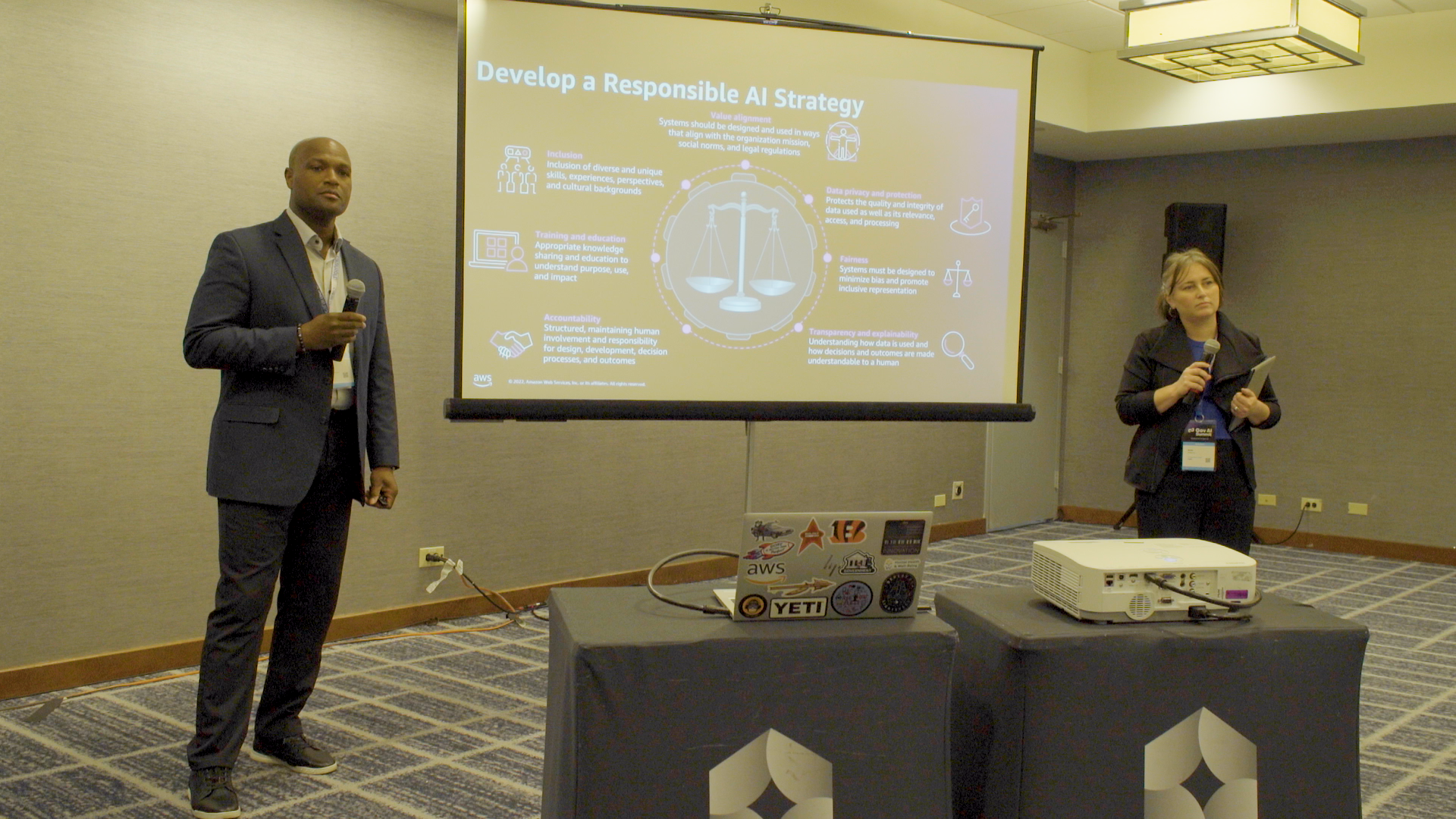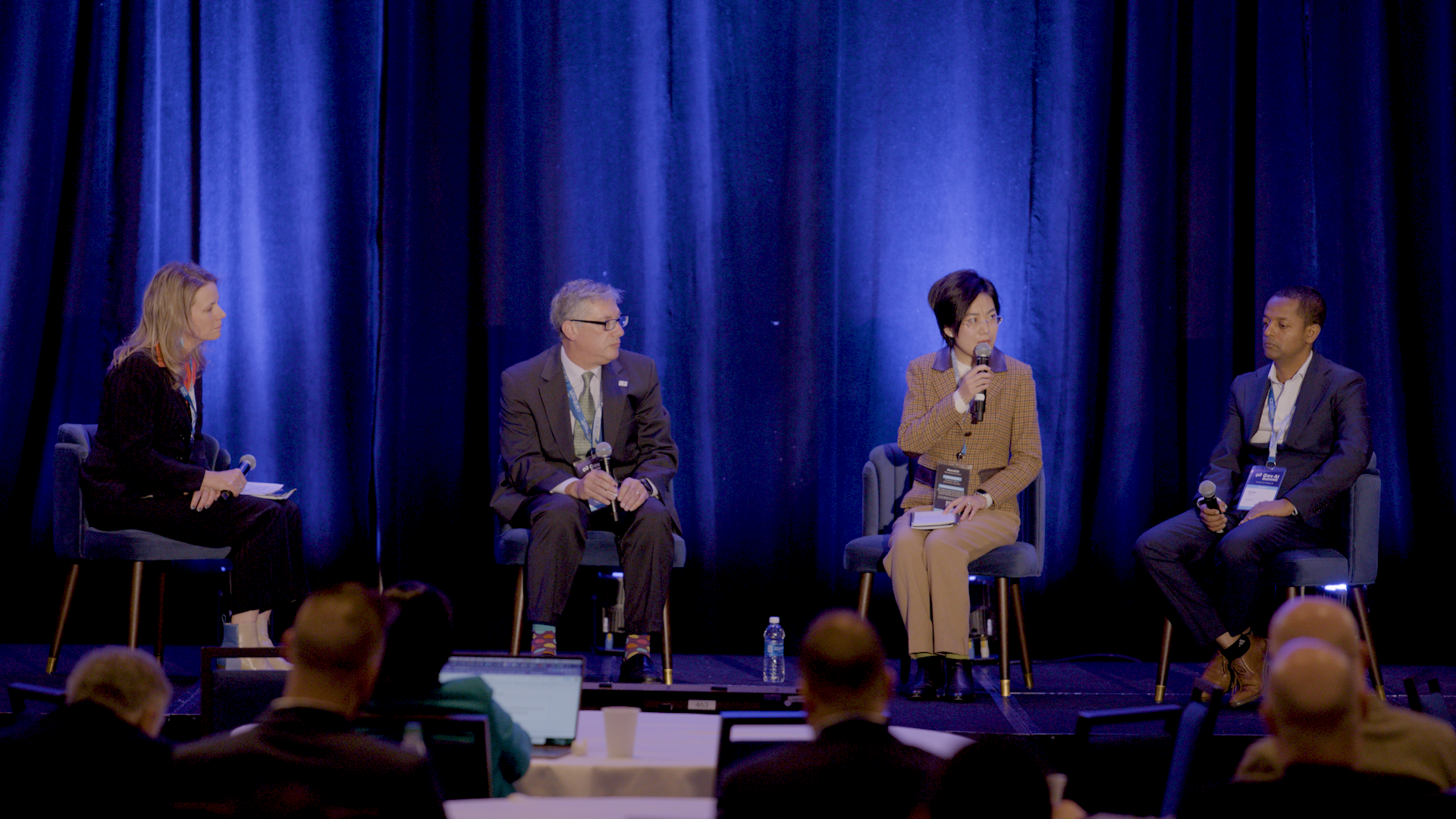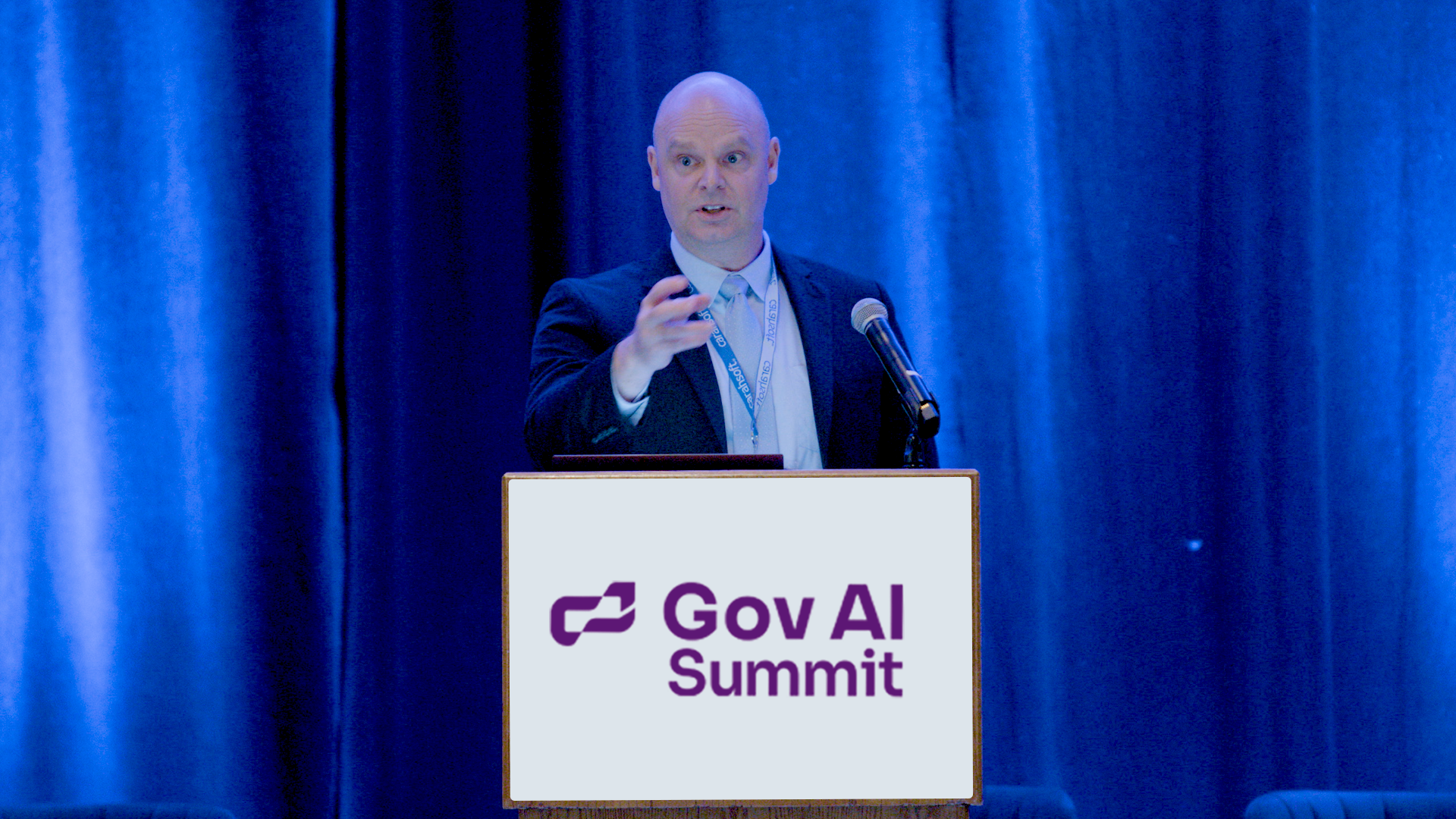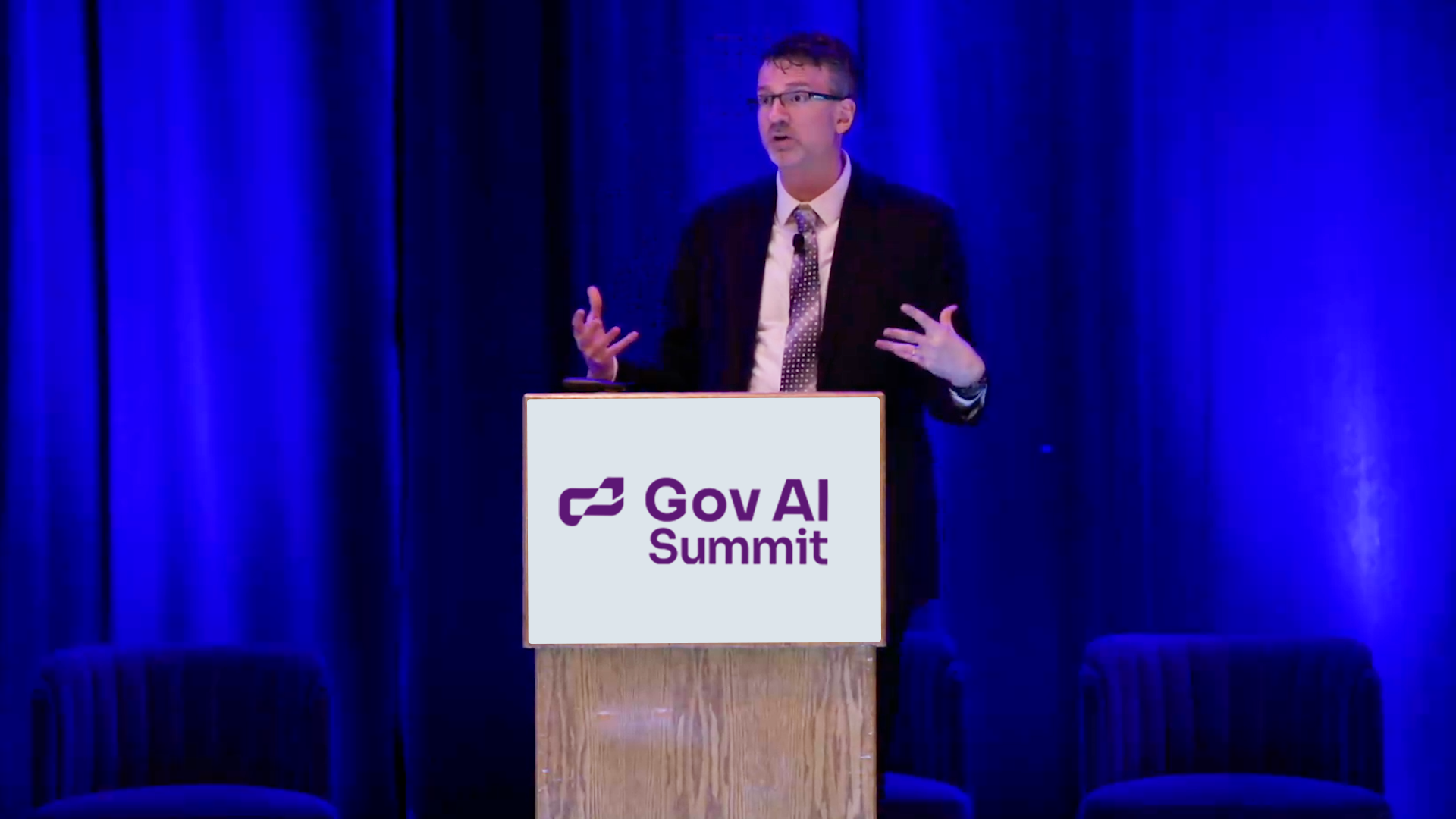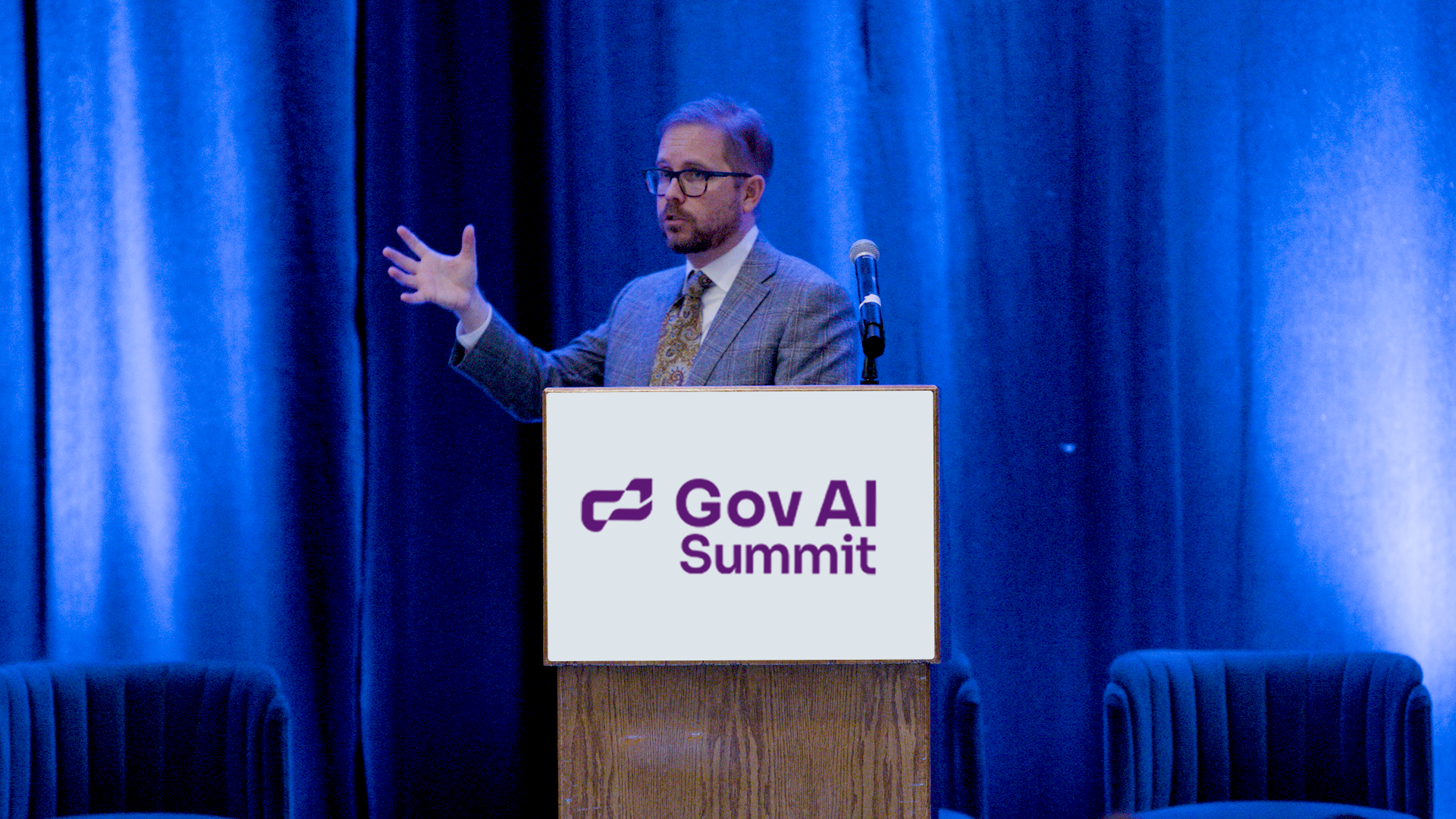The TSA’s AI Vision
by Modev Staff Writers on March 19, 2024
Kristin Ruiz at GovAI 2023
Modev's GovAI 2023 gathered some of the most innovative minds in AI. One such speaker who joined us at the event stood out with her vision for a safer, more connected future. That's Kristin Ruiz, Deputy Assistant Administrator and Deputy Chief Information Officer at the Transportation Security Administration (TSA). At GovAI, she shared her insights on how AI will revolutionize how we think about security and customer experience.
With her extensive background in transportation security, Kristin brought to the summit a wealth of knowledge and a clear vision for the future. Her role at the TSA has given her a front-row seat to the evolution of security measures and technology's increasing role in keeping travelers safe.
TSA's Past, Present, and Future
Let’s take a look at a pivotal moment in history—9/11. Kristin was an active duty marine near the Pentagon on that fateful day. Beyond being a reminder of the tragedy, her story is also a testament to the resilience and dedication of those who serve. And it can help us understand the gravity of the TSA's mission and the importance of the work they do.
Fast forwarding to the present, the TSA has had quite a journey since its establishment on November 19th, 2001. The agency has had many accomplishments, such as federalizing over 450 airports and building TSA PreCheck, which has significantly streamlined the airport security process. But it's not just about what's been done; it's about what's next, and that's where AI comes in.
Critical Infrastructure and AI
A major focus of the TSA is securing tomorrow's infrastructure with AI, but what does this look like, exactly? AI-powered advancements could transform traditional security checkpoints into seamless, high-tech experiences. Imagine walking through a security checkpoint without breaking stride, as AI-driven systems discreetly flag any anomalies and allow security personnel to respond without disrupting the flow of passenger movement. This isn't just a pipe dream; it's a future that's within our grasp.
Let’s take a look at the Thanksgiving travel rush. AI could have improved the screening of the record 2.9 million people who traveled during that period. With AI, the TSA could utilize real-time data processing and machine learning models to manage passenger flow more efficiently, ensuring everyone gets to their destination with minimal hassle.
The TSA's use of credential authentication technology units and computed tomography X-ray scanners have improved security effectiveness and reduced physical contact—a crucial consideration in the age of COVID-19. These advancements are just the beginning as the TSA looks to deploy more technology across its security checkpoints to enhance identity verification and security efficiency.
Beyond the Tech Are People
But it's not just about technology; it's also about people. It is essential that the TSA industry partners and the travelers themselves in building an agency that's ready for the future. It's a collaborative effort, with each stakeholder playing a crucial role in shaping the travel experience.
Looking to the future, Kristin shared her excitement for AI's potential to become the central nervous system for modern enterprise architecture. She envisioned a world where AI-driven security systems, equipped with behavioral analytic algorithms, could identify potential threats with unprecedented precision. This would improve security while enhancing the customer experience by making the travel process smoother and more personalized.
Her vision extended beyond the airport to the entire travel journey, like integrating next-generation AI systems for personal travel assistance, which could provide algorithmically curated waypoints informed by deep learning insights. This level of intelligent automation could streamline every step of the travel journey, from check-in to arrival.
The TSA is just beginning to scratch the surface of AI's potential. We need industry partners to work together to chart the course for the future of secure and streamlined travel. It's a "wicked challenge," as Kristin puts it, but one that we can meet through the power of AI and the commitment of dedicated individuals.
Takeaways and Wrap-Up
So, what are the main takeaways from Kristin's eye-opening talk? For one, the future of travel and security is bright, with AI leading the way. It also became clear that the TSA isn't just a security agency but a forward-thinking organization ready to embrace innovation. Most importantly, we learned that securing tomorrow's infrastructure will be a collective effort that requires the collaboration of industry experts, the willingness of travelers, and the dedication of the TSA workforce.
As we wrap up our reflections on Kristin's enlightening presentation at GovAI 2023, it's clear that the future of travel and security is on the cusp of a transformative era. Kristin's vision for an AI-integrated infrastructure - one that enhances both security and customer experience - resonates as a beacon of progress in the ever-evolving landscape of technology. As we ponder the possibilities, it's pretty clear that the journey ahead is filled with potential. With the collective efforts of society as a whole, we are poised to redefine the standards of safety and efficiency in travel for years to come.



